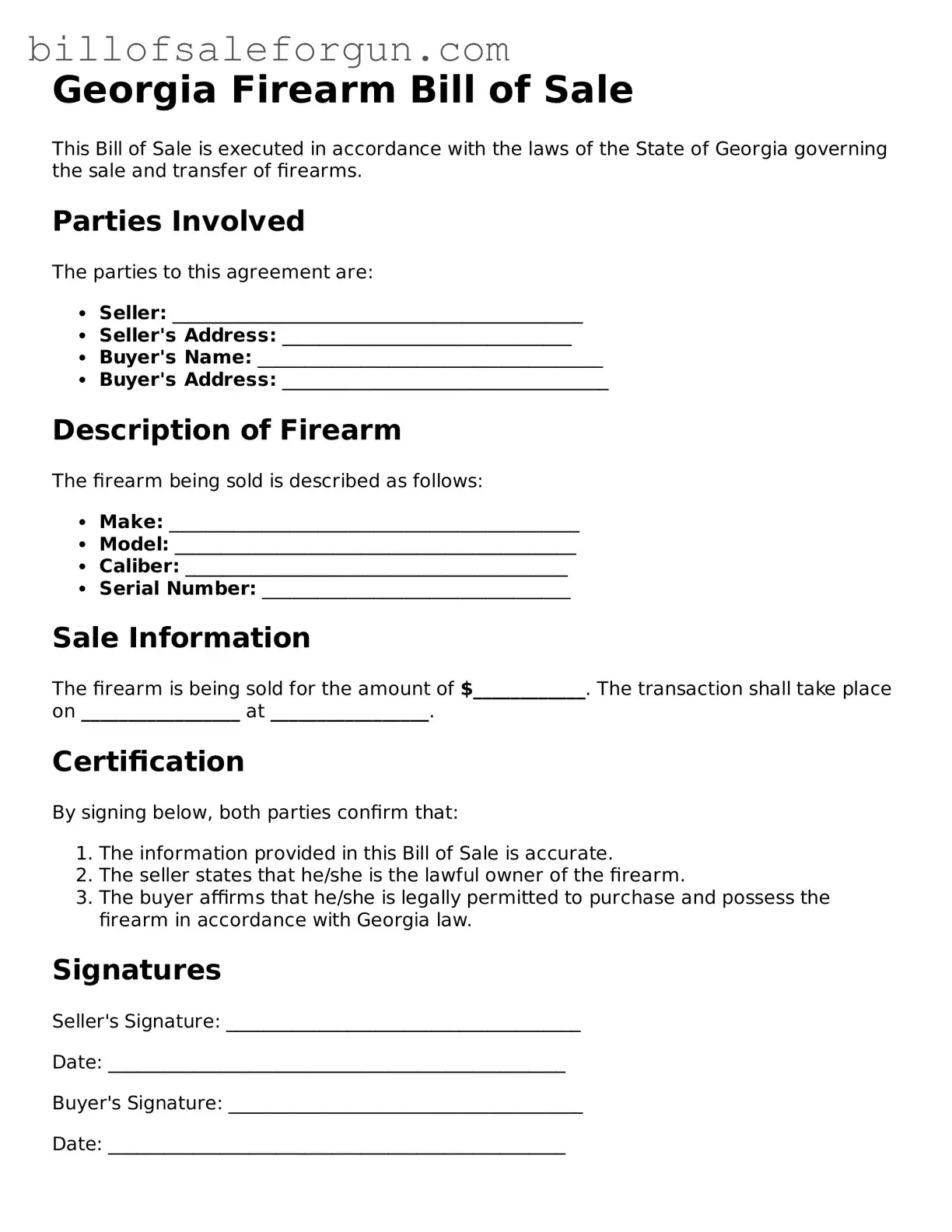Similar forms
The Georgia Firearm Bill of Sale form shares similarities with the Vehicle Bill of Sale. Both documents serve as proof of transfer of ownership from one party to another. They include essential details such as the names and addresses of the buyer and seller, a description of the item being sold, and the purchase price. Just like the Firearm Bill of Sale, the Vehicle Bill of Sale may also require signatures from both parties to validate the transaction. This ensures that the transfer is legally recognized and can be referenced in the future if needed.
Another document that parallels the Georgia Firearm Bill of Sale is the Personal Property Bill of Sale. This form is used for various types of personal property transactions, such as selling furniture or electronics. Similar to the firearm sale, it captures the buyer and seller's information, details about the item, and the agreed-upon price. Both documents help protect the interests of both parties and provide a clear record of the transaction, which can be important for legal or tax purposes.
The Lease Agreement also bears resemblance to the Firearm Bill of Sale in that it formalizes an agreement between two parties regarding the use of an item. While a Bill of Sale transfers ownership, a Lease Agreement outlines the terms under which one party can use another's property. Both documents include details such as the parties involved, the description of the item, and the terms of the agreement. This ensures that both parties understand their rights and obligations, providing clarity and reducing the potential for disputes.
Lastly, the Rental Agreement is akin to the Firearm Bill of Sale in that it documents the terms of a transaction between two parties. While the Firearm Bill of Sale finalizes the sale of a firearm, a Rental Agreement specifies the terms for renting property, such as a home or apartment. Both documents typically include the names of the parties, a description of the item or property, and the financial terms. They serve to protect the interests of both parties by clearly outlining expectations and responsibilities, which can help prevent misunderstandings in the future.
